Research in Motu, October–November 2021
Report by Onu Kere
Motuans are a group of Austronesian speakers whose villages are scattered along the south coast outside of Papua New Guinea’s capital, Port Moresby. They are mostly known for their famous hiri trade expeditions which are no longer practised today.
Motuans are closely interlinked with Koitabuans in customs and culture, although they speak different languages. The Motuan language is also known as Motu. Much of the modern-day lifestyle that Motuans live is strongly influenced by the London Missionary Society (LMS). The LMS prohibited most of the Motuan traditions such as feasting, tattooing, and the use of magic spells.
Most of the songs sung by the Motuans are hehona, which were associated with the now-extinct hiri. This exchange system was a very significant part of the Motuan tradition.
Onu Kere researched the Motu recordings in the True Echoes project. She received her Bachelor of Arts Degree from the University of Papua New Guinea, majoring in Political Science.
Recordings
Many of the songs heard in the old recordings are no longer sung today. The new recordings made show a variety of present-day styles of music, such as church hymns and hehona. Most are sung in contemporary style with the influence of Western music.
Interview with Arua Dairi, age 71, of the Boat clan. Recorded in Porebada, Motu on 25/10/2021. Dairi listens to the song recorded on cylinder C62/1437, labelled as ‘Galo Galo’.
ONU: This is Cylinder Number C62/1437
*Plays Cylinder 1437*
ONU: Ina ane ome kamonaia be odibaiam eiava?
(Do you recognize the song that you have just heard?)
ARUA: Na ane tune na na eka kunekune anedian heto
(The tune of the song sounds more like ‘kunekune’.)
ONU: Kunekune?
(‘Kunekune’?)
ARUA: Mmm…
(Yes.)
ONU: Kunekune be dahaka?
(What is kunekune?)
ARUA: Ari rui eivana dahaka ealam negadiai una ane eabiam…
(A song sung when killing a dugong or such.)
ONU: Ina ane lalonain eka egwaum galo galo.
(There is the mention of the words ‘galo galo’ in the song.)
ARUA: Galo galo
(‘Galo galo’).
ONU: Da oiem lalohadaiai galo galo be dahaka?
(What do you think ‘galo galo’ means?)
ARUA: Galo galo…*says one part of song* urea dobi…galo galo na…ari toda idiedia varo ladana…herena ai Botai emai varo ladana be ‘Vagi Bada’…da na reana varo matagara ladana ta reana odibam…
(‘Galo galo’…Galo galo maybe the name of the fishing net. Just like the Botai clan. Our fishing net is called ‘Vagi bada’. So maybe it is the name of a fishing net.)
ONU: Ok…
(Ok…)
ARUA: Edia…idiedia varo ladana…na ane boaheroam rui eva dahaka ealam negadiai mai anedi aida, ane tune idia na inbamodia…mmm…ari kunekune nagwaum na kunekune…
(The name of the fishing net. When a dugong is captured, this song is always sung. This is the type of tune. This is kunekune.)
ONU: O rui be dahaka?
(So what’s ‘rui’?)
ARUA: Ina da, ahhh dugong…
(It’s dugong.)
ONU: Dugong?
(Dugong?)
ARUA: Mmm…
(Yes.)
ONU: Ok…
(Ok…)
ARUA: Mmm…
(Mmm…)
ONU: Beda na ekada unu rui eboiridiam an?
(So, the’re calling the dugongs right?)
ARUA: Lasi rui ealam bena…
(No, when the dugong is killed.)
ONU: Ealam?
(Killed?)
ARUA: Eee, e mavarum anedia…mmm
(Yes, songs for celebrating.)
ONU: Ekada emoalem
(So it’s like they’re celebrating a victory)
ARUA: Mmm…
(Mmm…)
ONU: Ok…
(Ok…)
ARUA: Ane ta rua na haida seabia vareai, words dia name kamonai neganai ena…
(Some of the words of songs sung these days have been derived from this song, according to how I heard it.)
ONU: Ok…Ina ane lalonain eka instruments haida dan e use ilaia an?
(Ok…it seems that an instrument has been used in this recording, right?)
ARUA: Io…ahhh…unada vanagi, vanagi dahakanai na vanagiai edanum *demonstrates by rythmically beating floor with hand*…una dahaka hetore, anedia hetore eva dahaka?
(Yes, I think it is from beating the side of the canoe or such. Are those the words written?)
ONU: ia da ekada…iii…
(Well, something like that)
ARUA: iaaa, na…
(Well…)
ONU: Na ekaaa, na next gauna…da daita hanai a?
(That’s for the next recording.)
ARUA: Namo, ena dahaka gau do let’s go on…
(It’s fine, about that, let’s go on)
ONU: Ok…da asi em hereva
(Ok, so do you have anything to add on?)
ARUA: ‘Bogi Bada’ ina be ita be edeseniai where are we now?
(‘Bogi Bada’…where are we now?)
ONU: Mmm…
(Mmm…)
ARUA: Bogi badai a? E?
(The recording of ‘Bogi Bada’?)
ONU: Naa…inaia do takaraiam, na ma baita hanaim
(We’re still on a different recording. Then, we’ll move on).
ARUA: Ahh? O ita bedeseniai?
(Ahh? So where are we?)
ONU: Inkai…
(Over here.)
ARUA: Ok…mmm
(Ok…*agrees*)
ONU: Mmm…beda oi asi em lalohaida, ahh…lalohadai herevadia haida?
(So what else do you think about this recording?)
ARUA: Aina gwa na Motu ahhh…either, matagara ekaraiam anena, matagara na varo, ahh…
(Let me say its a song about ‘matagara’ *big fishing net* it is made out of vine…)
ONU: Mata?
(Mata?)
ARUA: Matagara
(Matagara)
ONU: Matagara
(Matagara)
ARUA: Fishing net badadia…the best daitagwa, the biggest odibam, haoda badadiai elahoaim gaudia…mmm…idia eudadiamu, idia vanagi eudamu lauda balaohoai anedia eivana…eivana dealaia haodai bena rui eala bena ane anen eabim unubamodiai…more celebrating unbamona…mmm…
(Big fishing nets…let’s say the best, the biggest you know, purposely for fishing, so such song is probably for fishing or when killing dugong…more celebrating unbamona.)
ONU: Thank you…da mani aita hanai recording ta.
(Thank you…let’s move on to the next recording.)
Ba Kara Maoro (No. 168)
Porebada Womens Fellowship
Recorded 5 November 2021
(3 minutes 24 seconds)
1. Ba goada balaheni,
Oi na a hidimu Iesu ese,
Ena gaukara ba rakalaia,
Aneru ese bae itamu tao.
Chorus:
Oi, oi, ba vareai,
Oi, oi, ba heduru,
Oi ba gaukara,
Ba hebamo.
2. Ba goada momokani,
Se gaukaramu ba dekedia,
Sibomu ba gima hanaihani,
Ba gini tutuka ela mase.
3. Ba gaukara balaheni,
Dirava ese e itamumu,
Emu hededegwa negadiai,
Baine beiamu maoromaoro.
4. Ba henari ba lalokau,
Iesu na oi baine abimudae,
Ena gwauhamata gabuna ai,
Una na oi emu mauri hanai.
Chorus:
Oi, oi, ba goeva!
Oi, oi, ba moale!
Oi ba hisidae!
Hanaihanai!
(Be very strong
You have been chosen by Jesus Christ
To fulfil his will
The angels will guide you)
Chorus:
(You, you, be part of it
You, you, give a hand
You must do your work
Be a friend)
(Be very strong,
Be there for the weak,
Be courageous always,
Stand strong till death.)
(Be strong and loyal
The Lord is watching you
During your times of trial
He will be with you)
(Be caring be loving,
Jesus will welcome you
Just as he has promised
That life everlasting is yours)
Chorus:
(You, you, be perfect!
You, you, be happy!
Rejoice!
Forever.)
Historical Recordings
The following cylinders were researched by Onu Kere from the Alfred Court Haddon 1898 Expedition (Torres Strait and British New Guinea) Cylinder Collection (C80 British New Guinea).
| British Library shelfmark | Recording title | Performer name | Recording location | Recording date | Content description | Performer description | Recording notes | Languages | Genre | Recordist | Recording length | Recording trip | Description of cylinder | Collection title | Cylinder location | Images of cylinder containers / documentation | Related print publication: | Related print publication: | Related print publication: | Related print publication: | Related print publication: | Related print publication: |
|---|---|---|---|---|---|---|---|---|---|---|---|---|---|---|---|---|---|---|---|---|---|---|
| C80/1062 | Koitapu sentences and Motu Hymn | Ahuia Ova (speaker, singer, male) | Port Moresby, British New Guinea | 6 July 1898 | 1. Announcement: "Koitapu sentences and Motu Hymn." 2. Solo male speech. 3. Unaccompanied male vocal solo. | Reasonable quality recording but with surface noise due to light mould on cylinder. | Koitabu and Motu | Field recordings; Speeches; Hymns | Ray, Sidney | 3'01" | Alfred Cort Haddon 1898 Expedition, British New Guinea | Brown wax cylinder | Alfred Cort Haddon 1898 Expedition (Torres Strait and British New Guinea) Cylinder Collection | British Library | 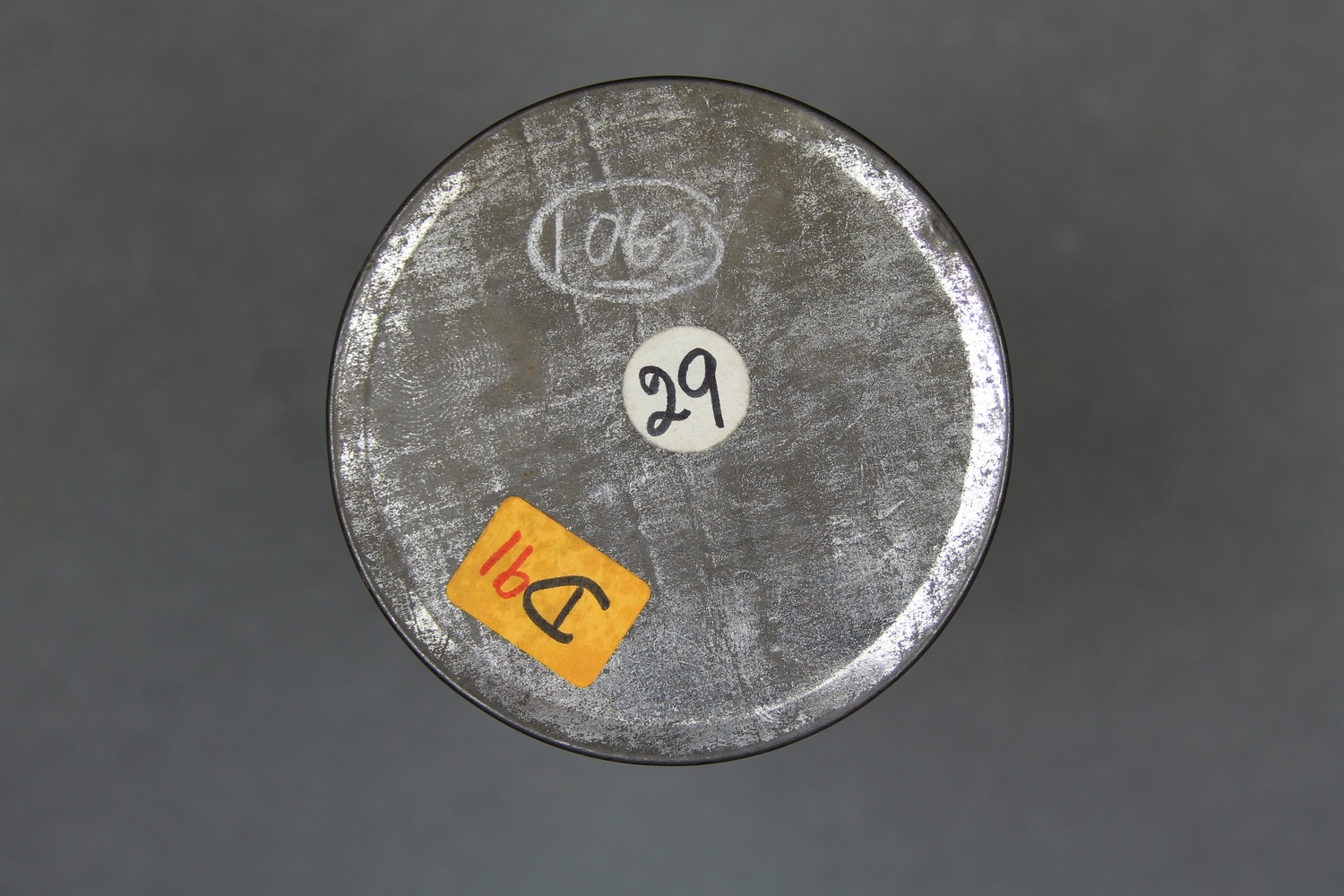 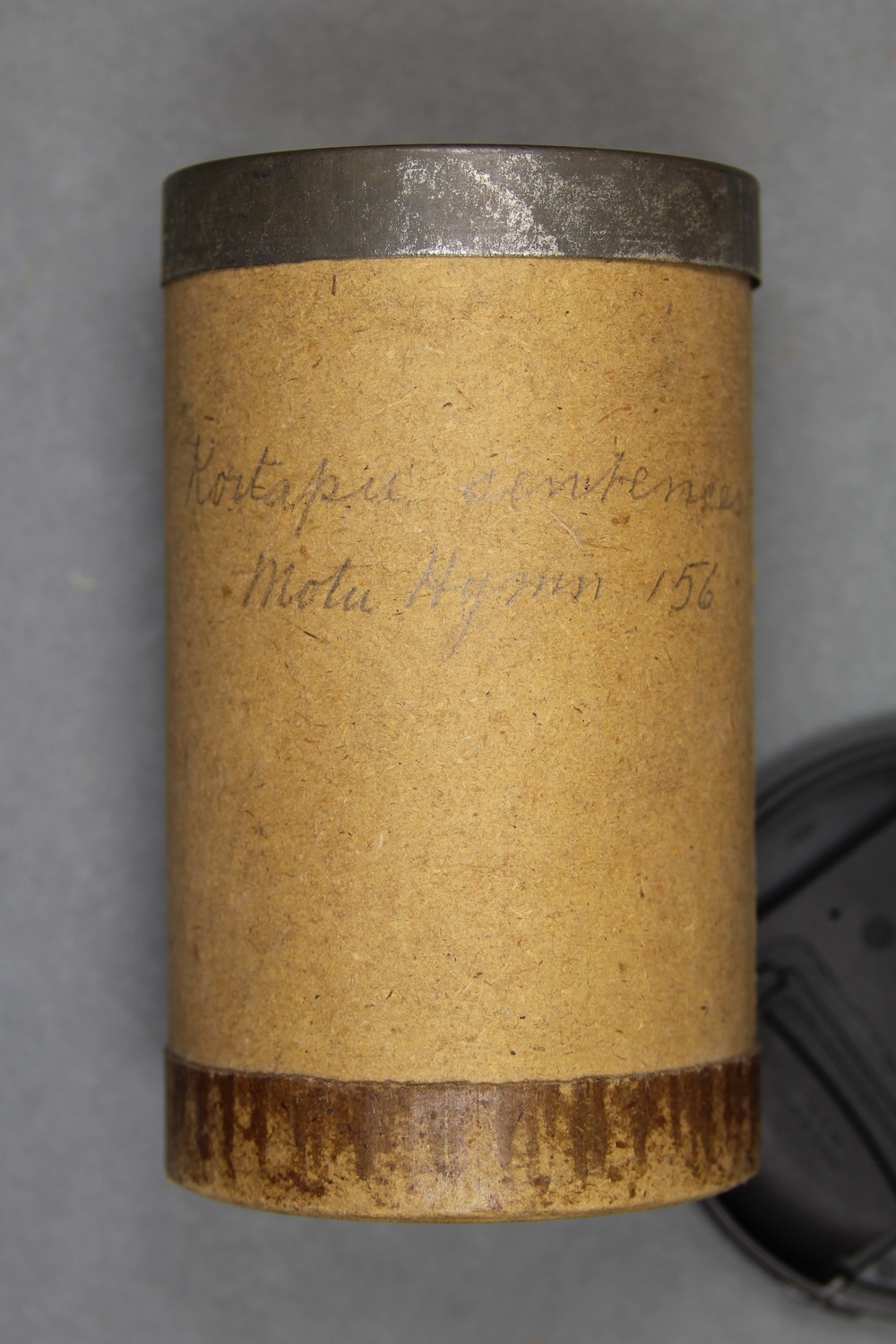 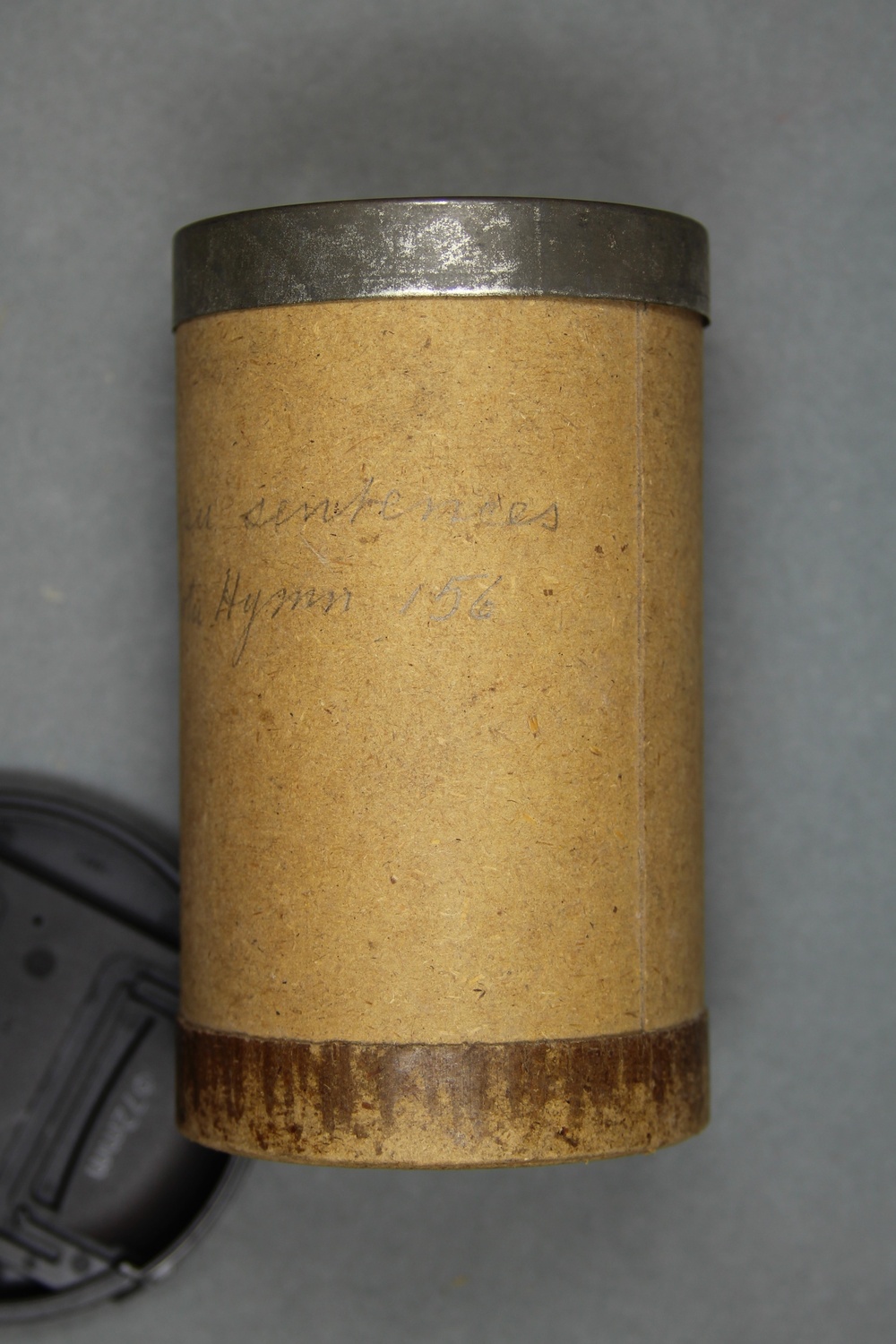    | |||||||
| C80/1455 | Hymn 41 Glory | Unidentified (male chorus) | British New Guinea | 27 May 1898 – 1 October 1898 | 1. Unaccompanied male vocal group. | Reasonable quality recording but some surface noise. | Field recordings | Ray, Sidney | 2'12" | Alfred Cort Haddon 1898 Expedition, British New Guinea | Brown wax cylinder | Alfred Cort Haddon 1898 Expedition (Torres Strait and British New Guinea) Cylinder Collection | British Library | 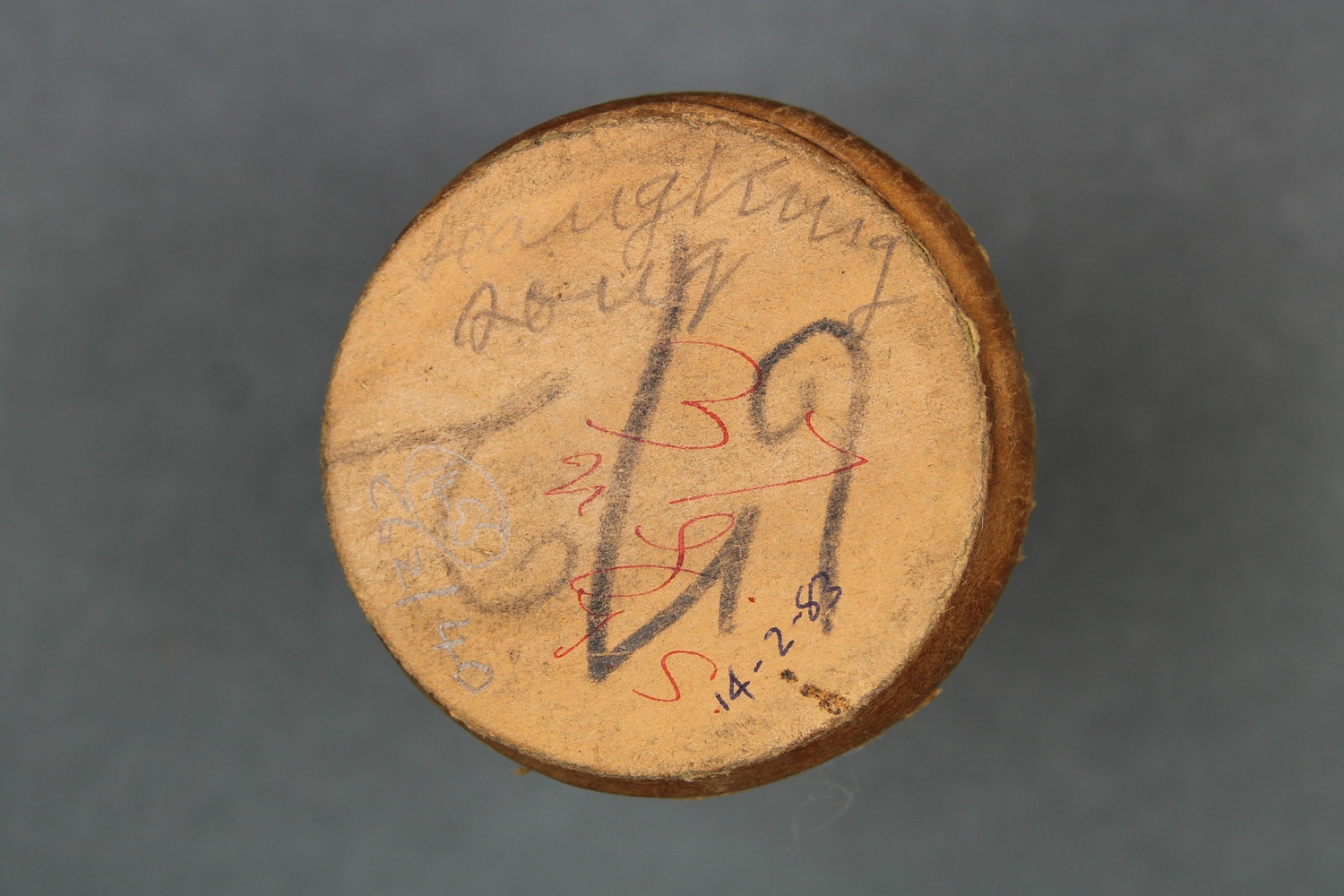 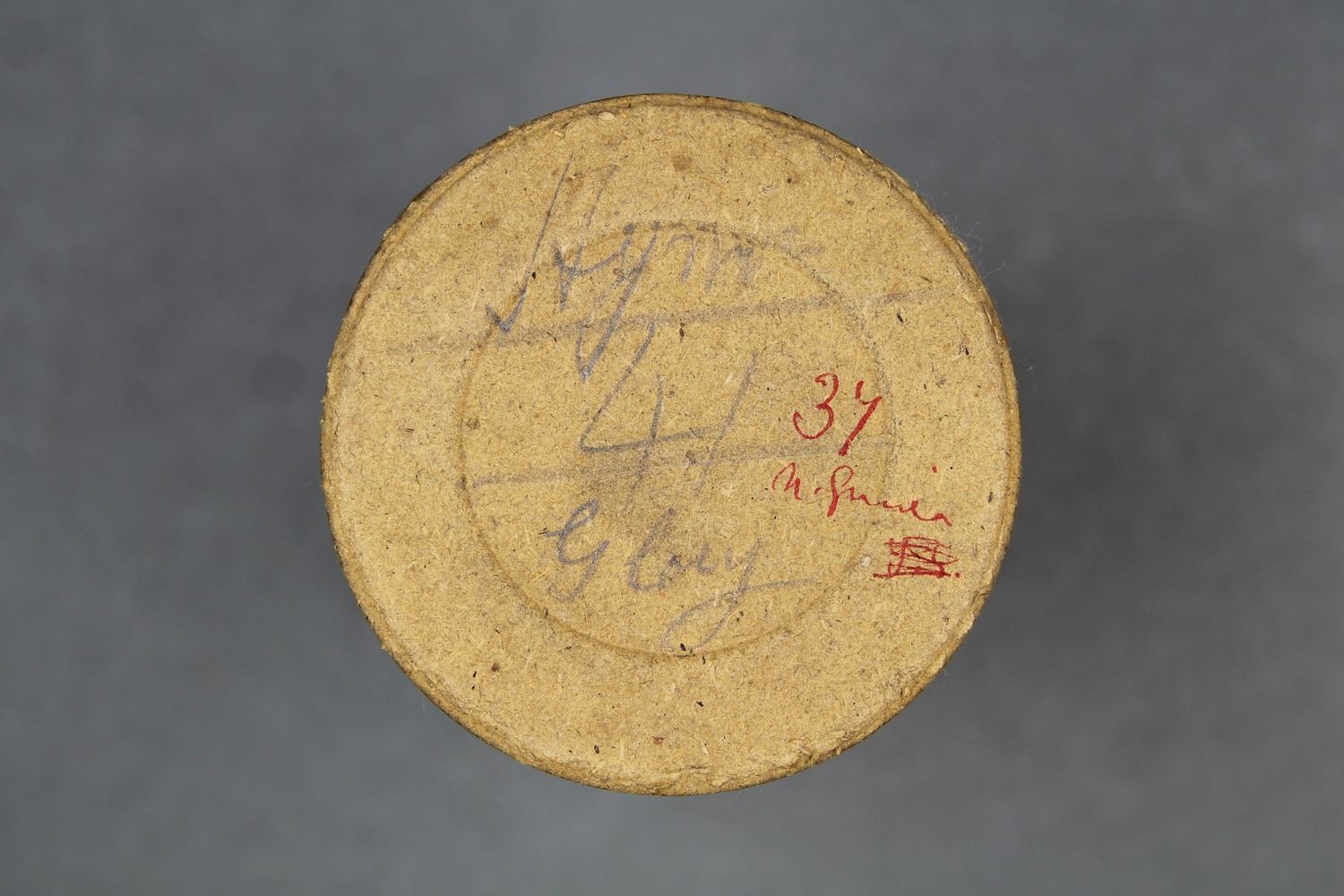     | ||||||||
| C80/1456 | Lakatoi Song | Unidentified (male chorus) | Port Moresby, British New Guinea | 20 June 1898 – 6 July 1898 | 1. Announcement: "A Lakatoi Song." 2. Unaccompanied male vocal group. | Reasonable quality recording but with weak signal and surface noise. | Motu (archaic language) | Field recordings; Sailing; Trade | Ray, Sidney | 2'20" | Alfred Cort Haddon 1898 Expedition, British New Guinea | Brown wax cylinder | Alfred Cort Haddon 1898 Expedition (Torres Strait and British New Guinea) Cylinder Collection | British Library | 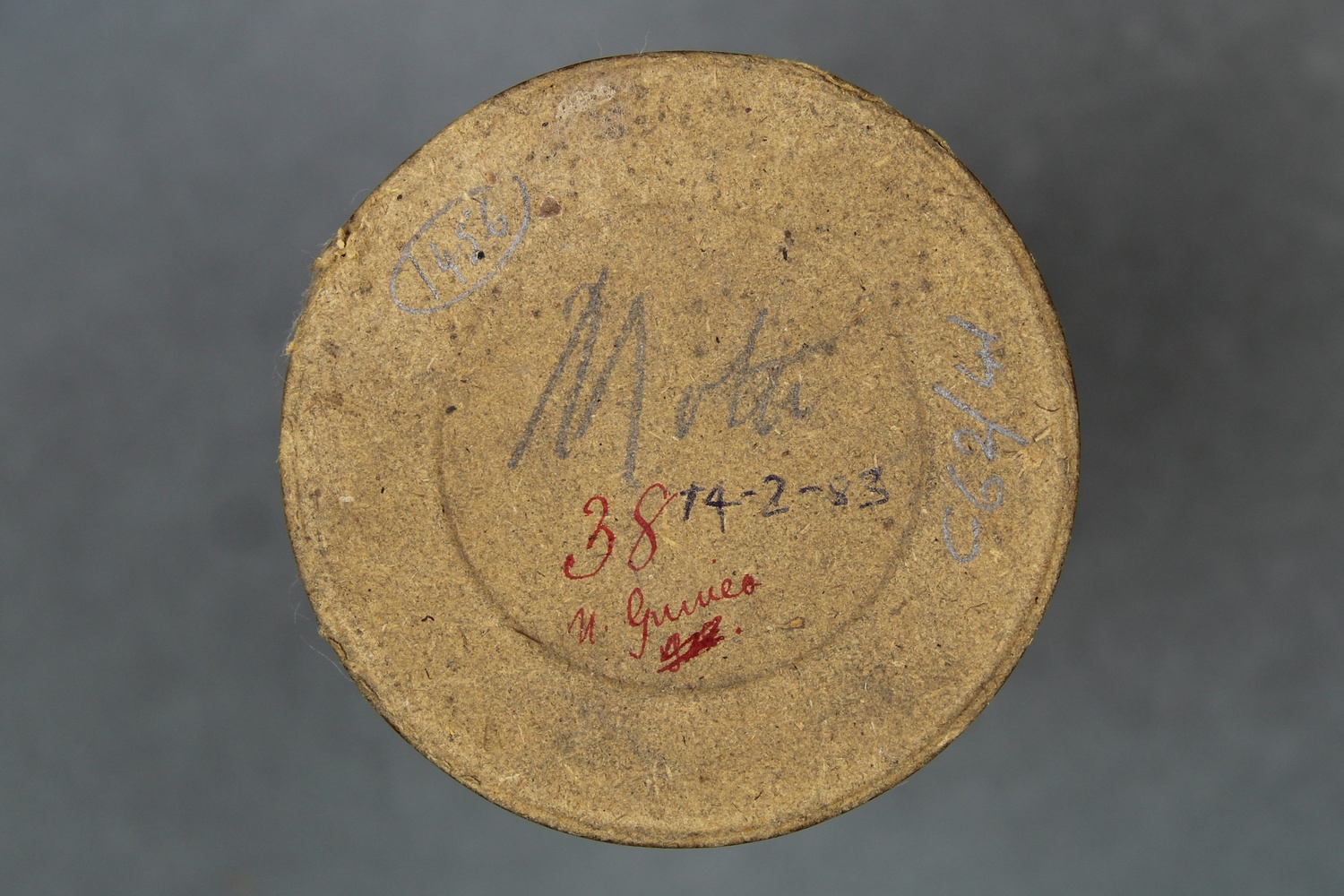 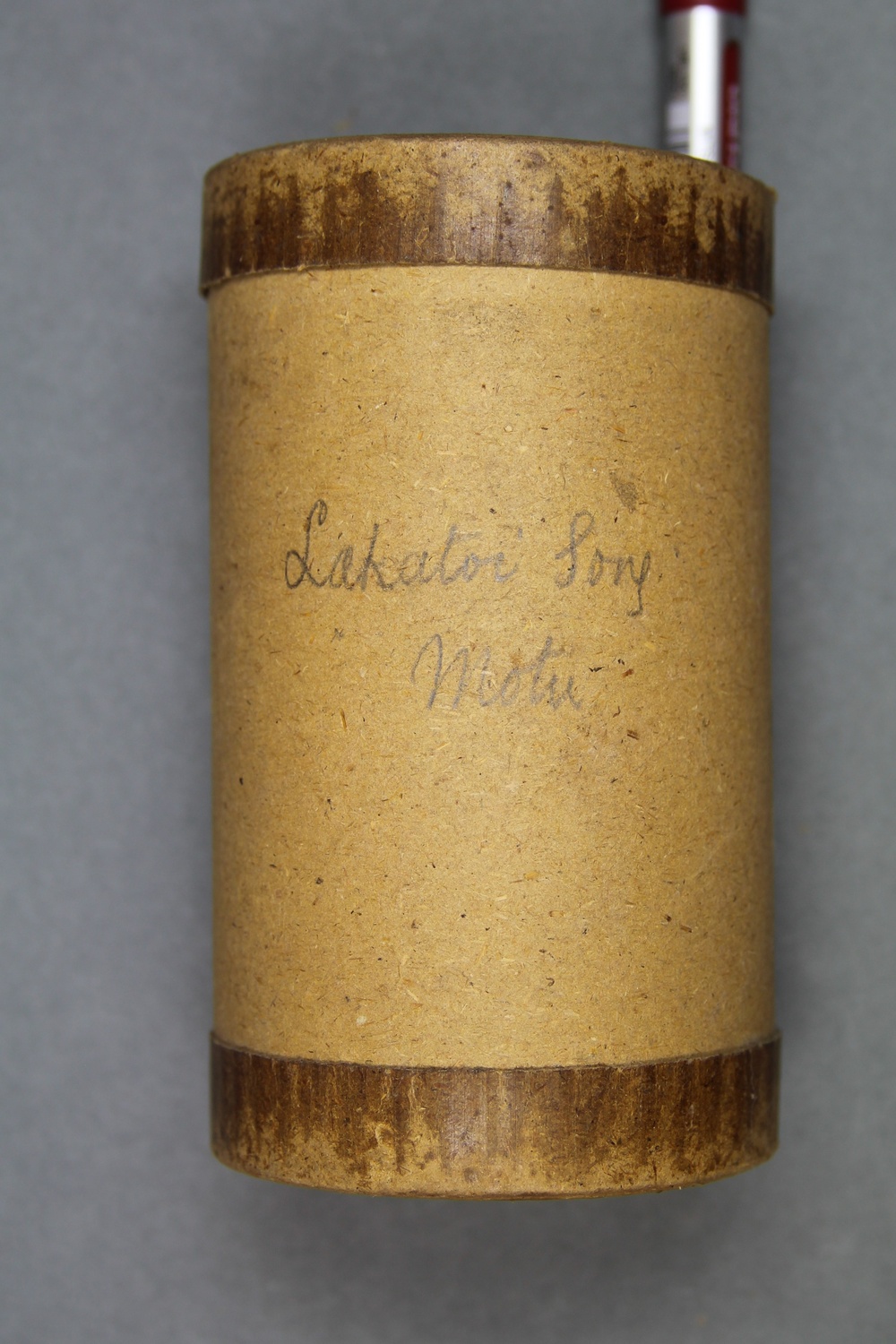     | |||||||
| C80/1457 | Hymn | Unidentified (male chorus) | British New Guinea | 27 May 1898 – 1 October 1898 | 1. Unaccompanied male vocal group. | Reasonable quality recording but with surface noise. | Field recordings; Hymns | Ray, Sidney | 2'13' | Alfred Cort Haddon 1898 Expedition, British New Guinea | Brown wax cylinder | Alfred Cort Haddon 1898 Expedition (Torres Strait and British New Guinea) Cylinder Collection | British Library | 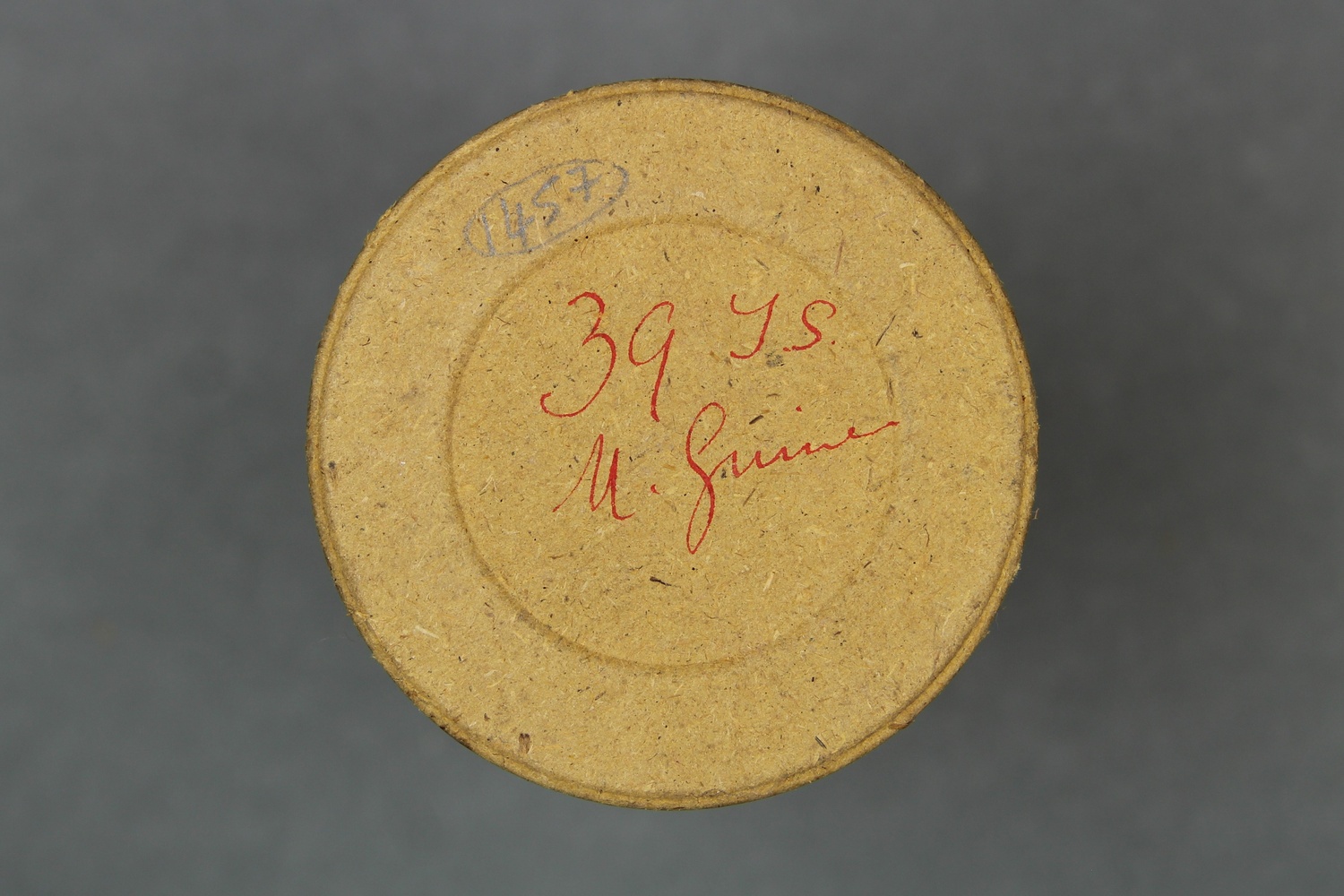 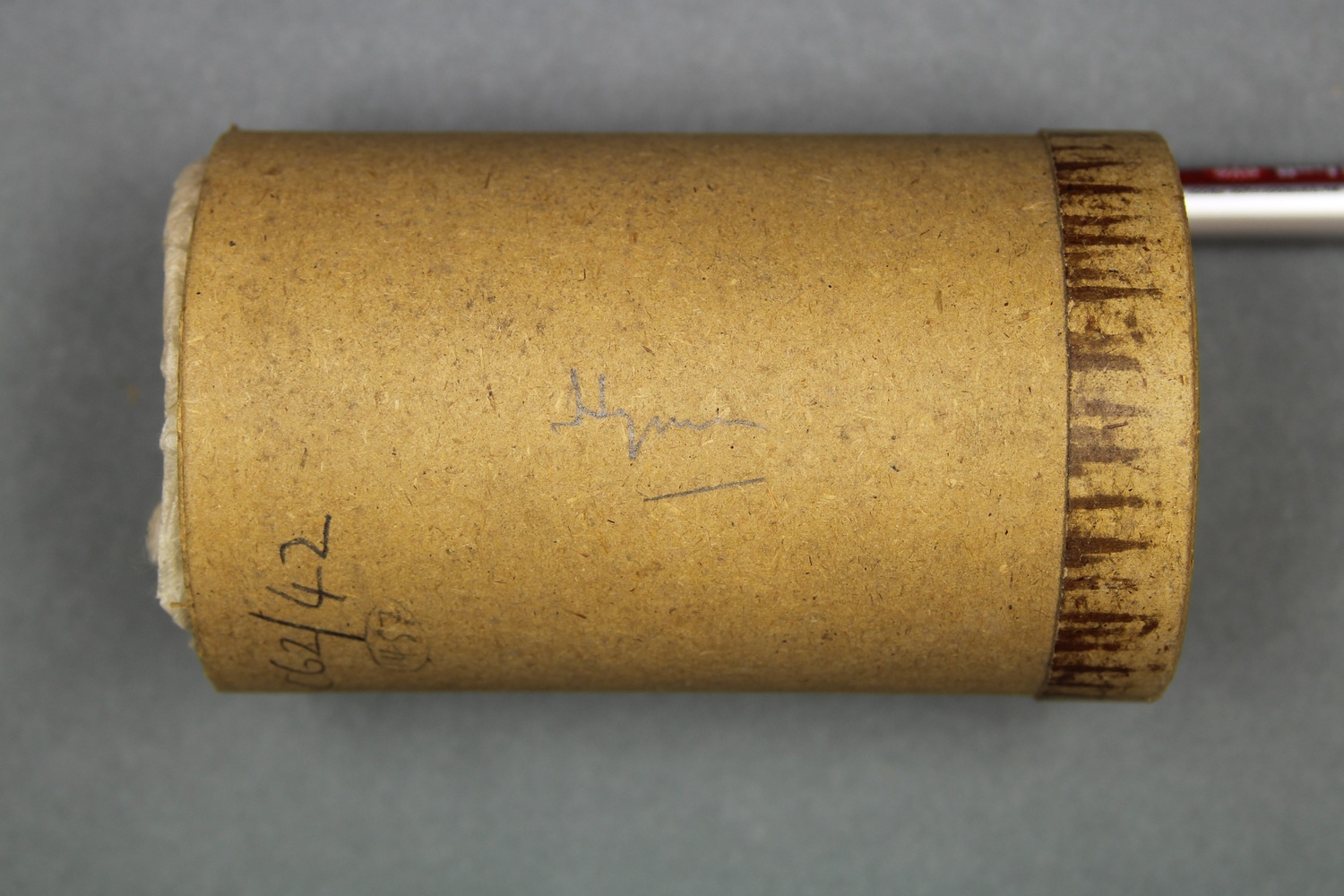     | ||||||||
| C80/1458 | Hymn No.23 Wareham | Unidentified (singer, male) | British New Guinea | 27 May 1898 – 1 October 1898 | 1. Unaccompanied male vocal solo. | Reasonable quality recording but with some surface noise. | Field recordings; Hymns | Ray, Sidney | 1'50" | Alfred Cort Haddon 1898 Expedition, British New Guinea | Light brown wax cylinder | Alfred Cort Haddon 1898 Expedition (Torres Strait and British New Guinea) Cylinder Collection | British Library | 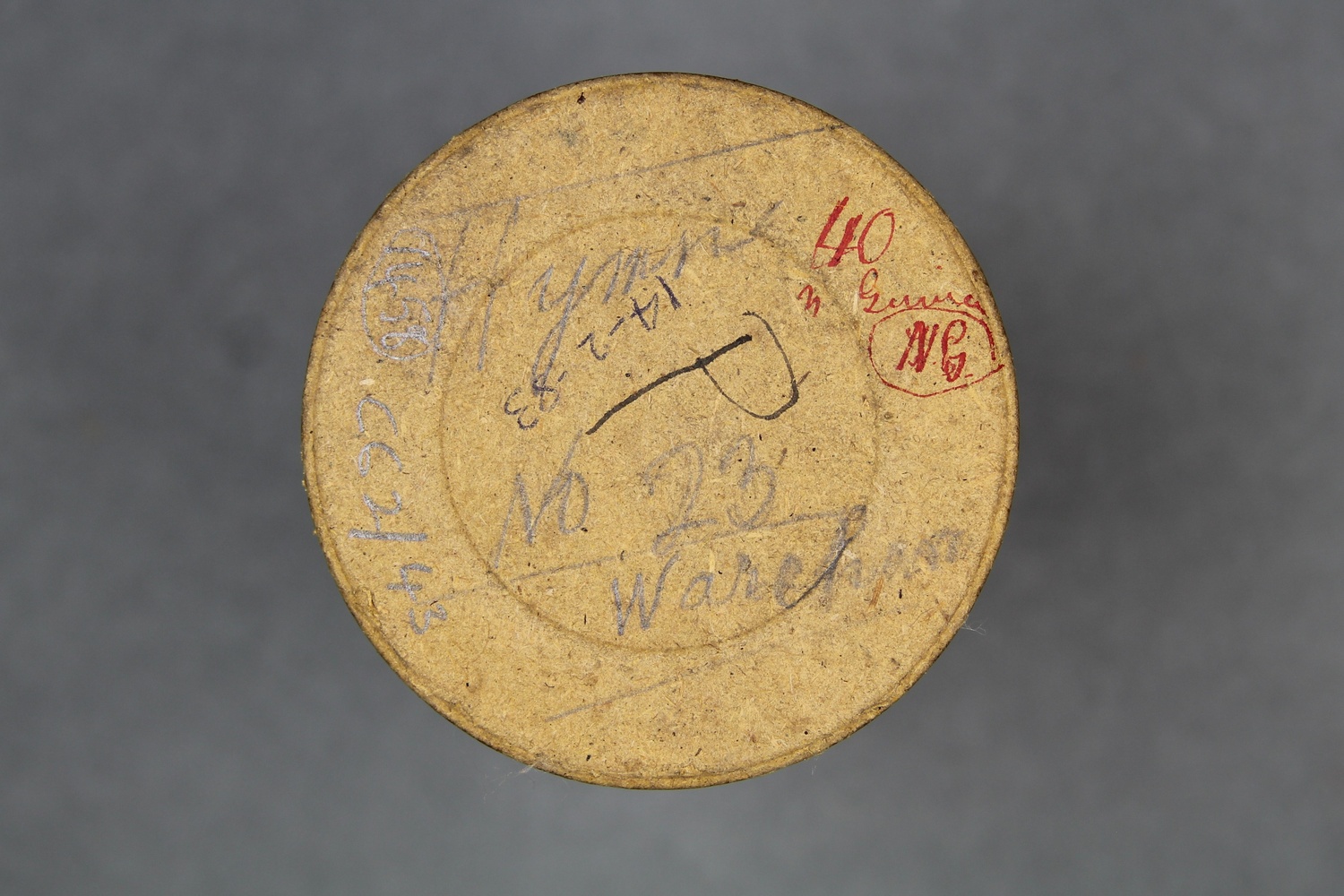 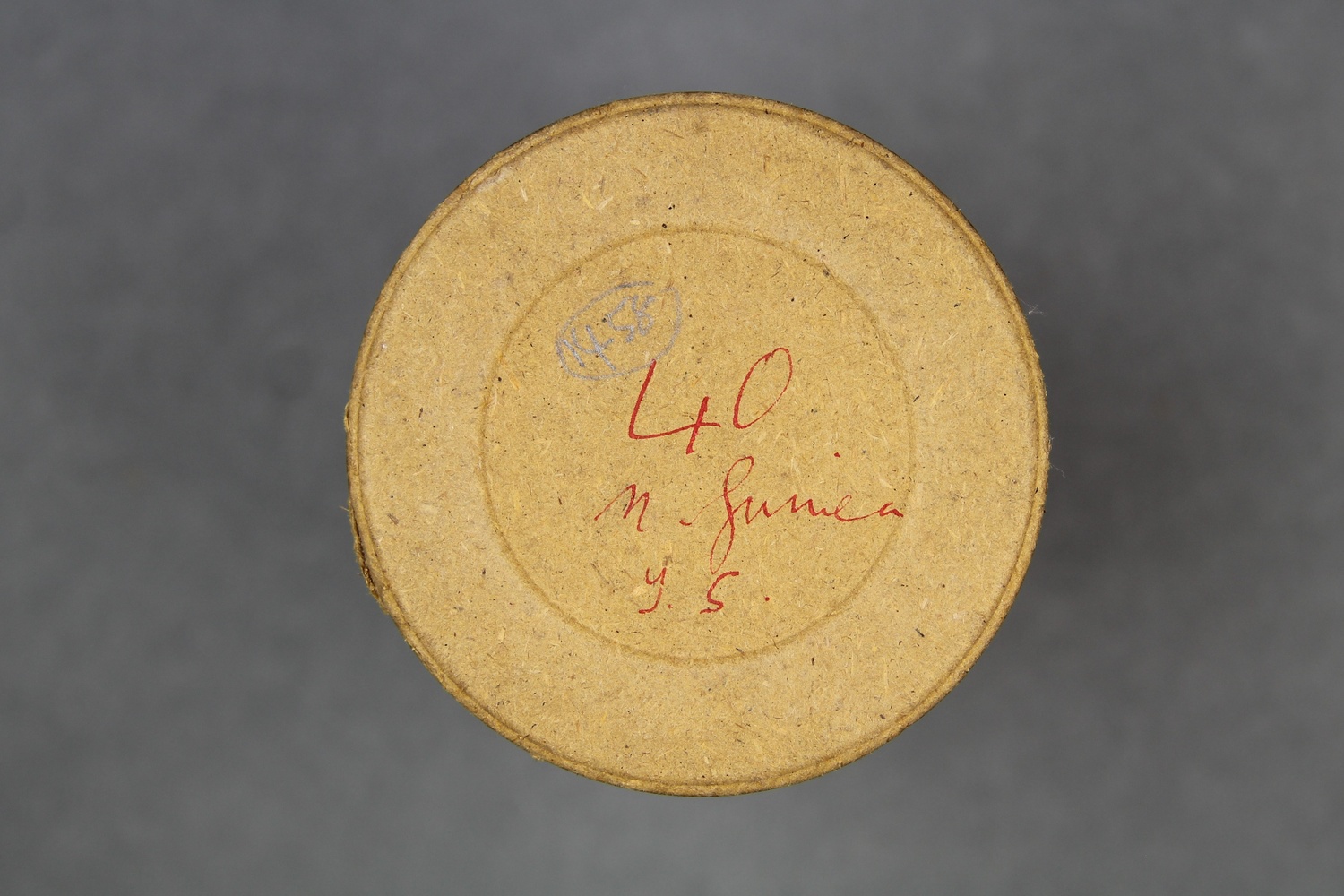     |
The following cylinders were researched by Onu Kere from the Daniels Ethnographical Expedition to British New Guinea 1904 Cylinder Collection (C62).
| British Library shelfmark | Recording title | Performer name | Recording location | Recording date | Content description | Performer description | Recording notes | Languages | Genre | Recordist | Recording length | Recording trip | Description of cylinder | Collection title | Cylinder location | Images of cylinder containers / documentation | Related print publication: | Related print publication: | Related print publication: | Related print publication: | Related print publication: | Related print publication: |
|---|---|---|---|---|---|---|---|---|---|---|---|---|---|---|---|---|---|---|---|---|---|---|
| C62/1415 | Waura Koita | Kabur (singer, male) | Port Moresby, British New Guinea | October 1904 | 1. Announcement: "Waura, a Koita song, sung by Kabur[?], Port Moresby, October 1904." 1. Unaccompanied male vocal solo. A song sung at dances and feasts. | Reasonable quality recording but with surface noise. | Koitabu | Field recordings | Seligman, Charles Gabriel | 3'40" | Daniels Ethnographical Expedition to New Guinea 1904 | Brown wax cylinder | Daniels Ethnographical Expedition to New Guinea 1904 Cylinder Collection (C62) | British Library | 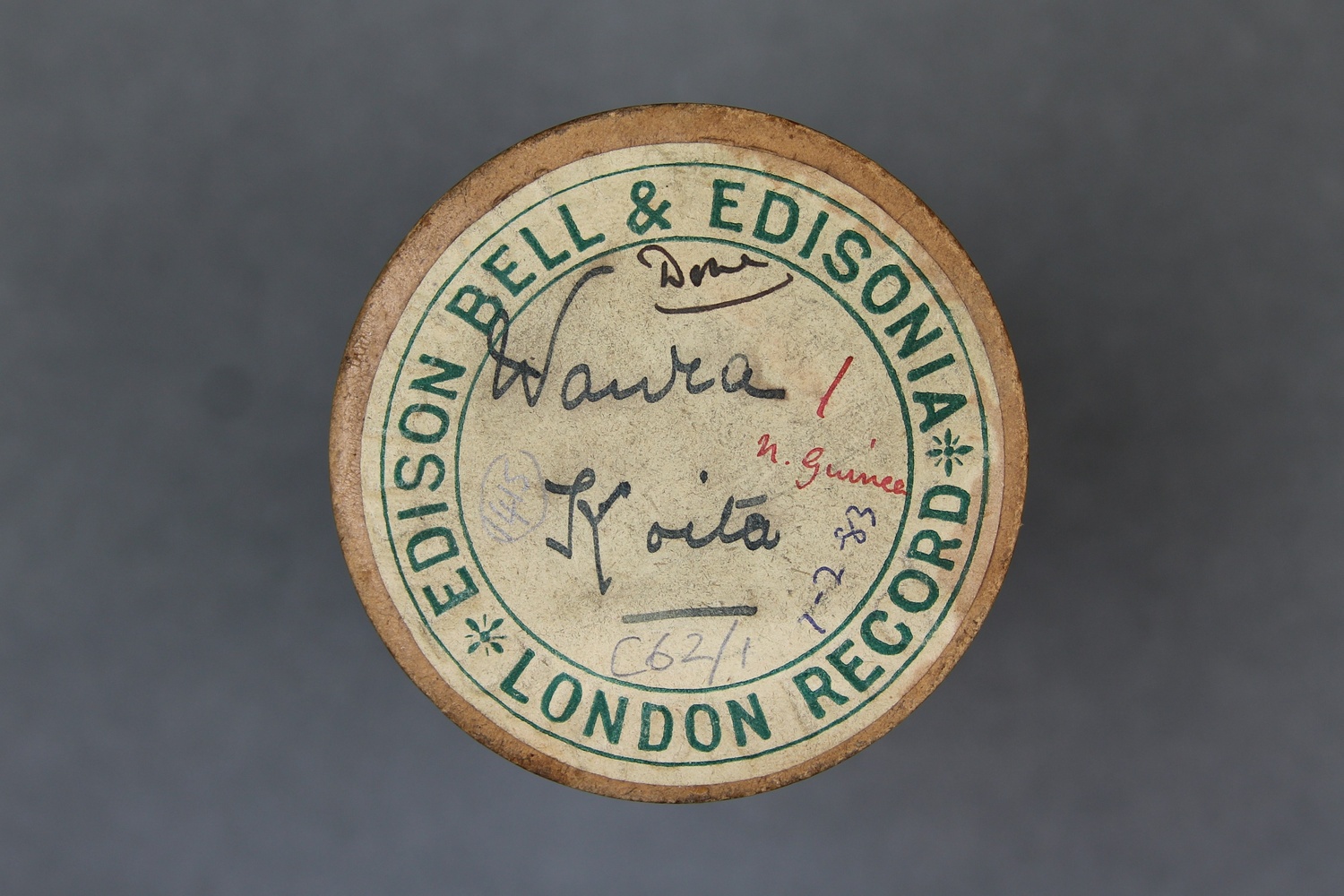 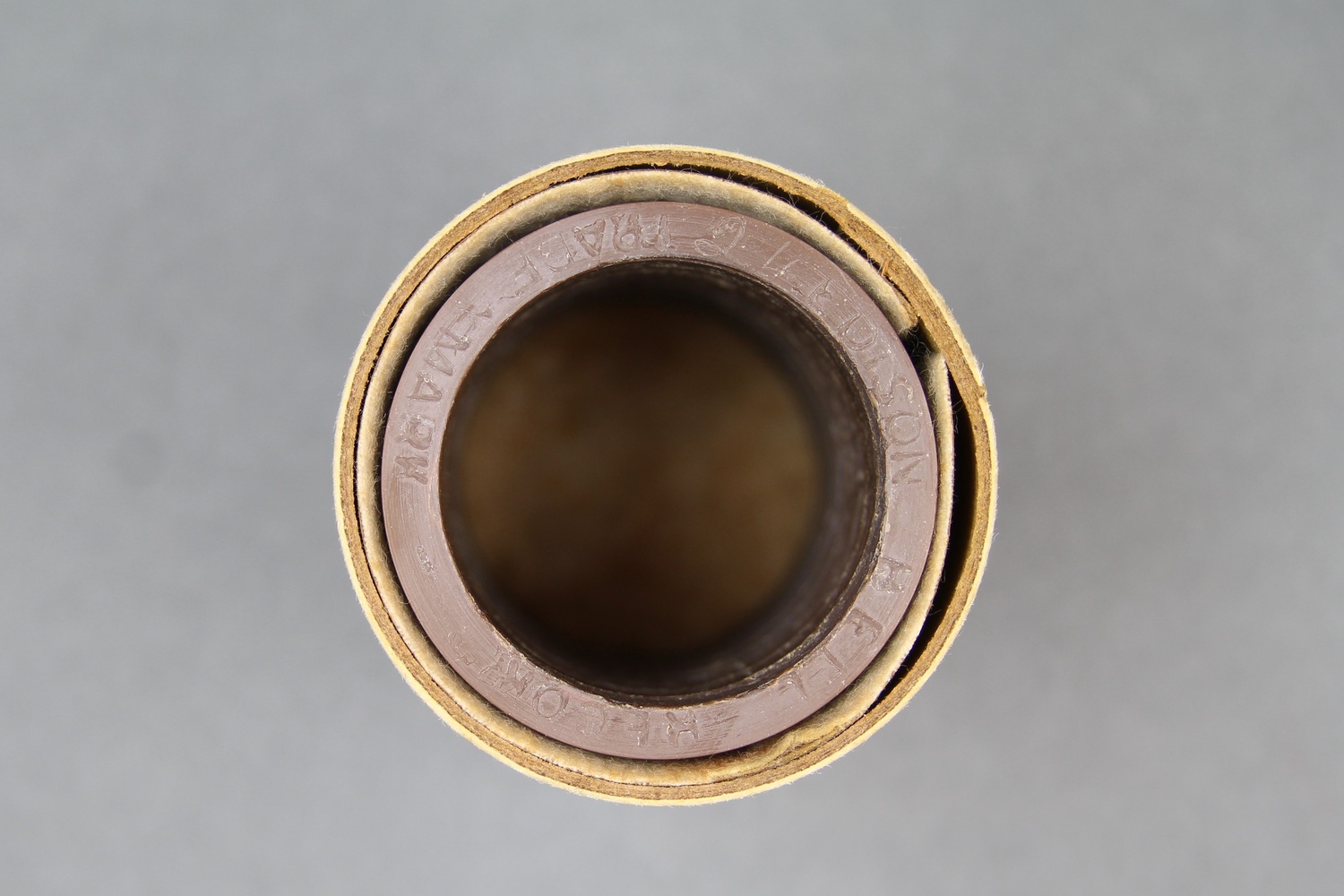     | This song is discussed and may be transcribed in Charles G. Seligmann, 'The Melanesians of British New Guinea', Cambridge University Press, 1910:151-152. | ||||||
| C62/1416 | Poru Koita | Kabur (singer, male) | Port Moresby, British New Guinea | October 1904 | 1. Announcement: "Poru, a Koita song, sung by Kabur[?] October 1904, Port Moresby." 2. Male vocal solo with percussion accompaniment. | Good quality recording but with some surface noise. | Koitabu | Field recordings | Seligman, Charles Gabriel | 3'29" | Daniels Ethnographical Expedition to New Guinea 1904 | Brown wax cylinder | Daniels Ethnographical Expedition to New Guinea 1904 Cylinder Collection (C62) | British Library | 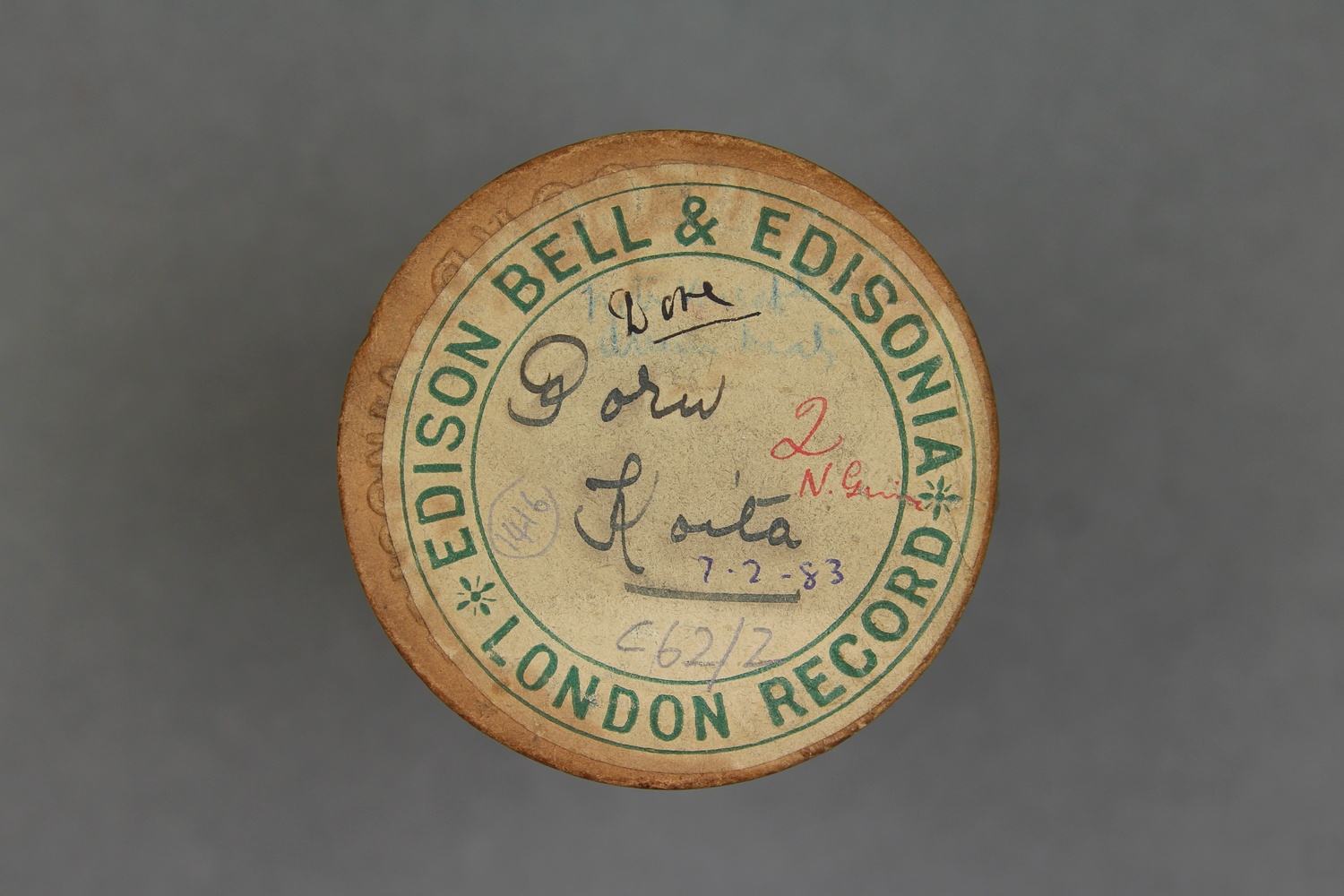      | This song may be discussed and transcribed in Charles G. Seligmann, 'The Melanesians of British New Guinea', Cambridge University Press, 1910:151-152. | ||||||
| C62/1417 | Berasi Koita | Unidentified (male chorus) | Port Moresby, British New Guinea | October 1904 | 1. Announcement: "Berasi - the Koita garden fencing song, sung at Port Moresby, October 1904." 2. Unaccompanied male vocal group. A song sung while fencing gardens; also a funeral dirge. | Good quality recording. | Koitabu | Field recordings; Garden fencing song | Seligman, Charles Gabriel | 3'51" | Daniels Ethnographical Expedition to New Guinea 1904 | Brown wax cylinder | Daniels Ethnographical Expedition to New Guinea 1904 Cylinder Collection (C62) | British Library |       | This song is discussed and may be transcribed in Charles G. Seligmann, 'The Melanesians of British New Guinea', Cambridge University Press, 1910:152-153. | ||||||
| C62/1418 | Ehona Lahato Koita | Igo Gow (singer, male) | Port Moresby, British New Guinea | October 1904 | 1. Announcement: "Lahato song, Ehona, sung by Igo Jow[?], Port Moresby, October 1904." 2. Unaccompanied male vocal solo. An ehona song. There are two photos of Igo Gow in the British Museum (Oc,B119.43 and Oc,B119.52). | Reasonable quality recording but with some distortion. | Koitabu or Motu | Field recordings; Trading song; Voyaging song | Seligman, Charles Gabriel | 3'43" | Daniels Ethnographical Expedition to New Guinea 1904 | Brown wax cylinder | Daniels Ethnographical Expedition to New Guinea 1904 Cylinder Collection (C62) | British Library | 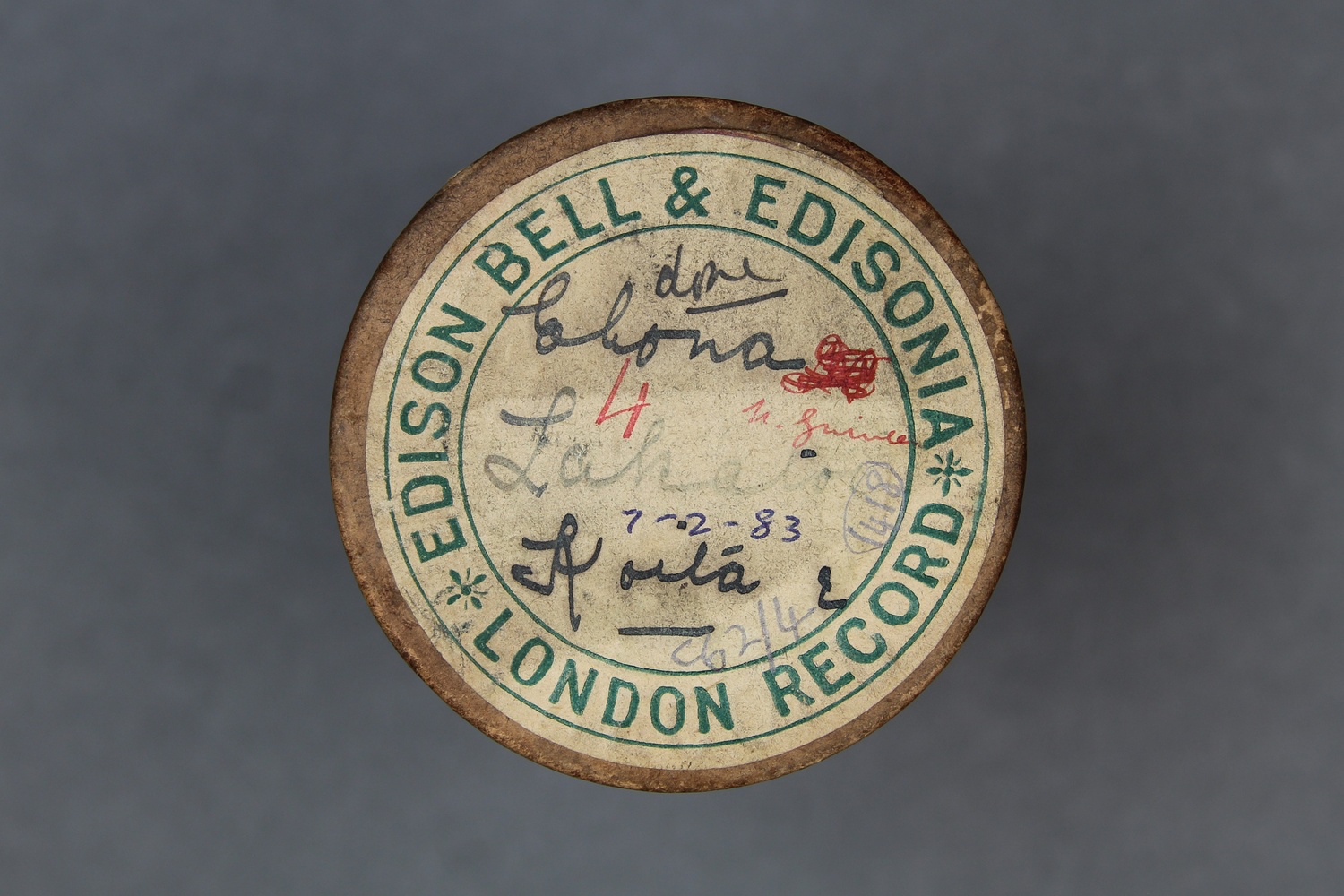      | This song may be discussed and transcribed in Charles G. Seligmann, 'The Melanesians of British New Guinea', Cambridge University Press, 1910:152. | ||||||
| C62/1424 | Hara Tabo Story | Ahuia Ova (narrator, male) | Port Moresby, British New Guinea | October 1904 | 1. Announcement: "The story of Hara Tabo, told by [indecipherable], Port Moresby, October 1904." 2. Unaccompanied male speech. | Good quality recording. | Koitabu | Field recordings; Speeches | Seligman, Charles Gabriel | 3'28" | Daniels Ethnographical Expedition to New Guinea 1904 | Brown wax cylinder | Daniels Ethnographical Expedition to New Guinea 1904 Cylinder Collection (C62) | British Library | 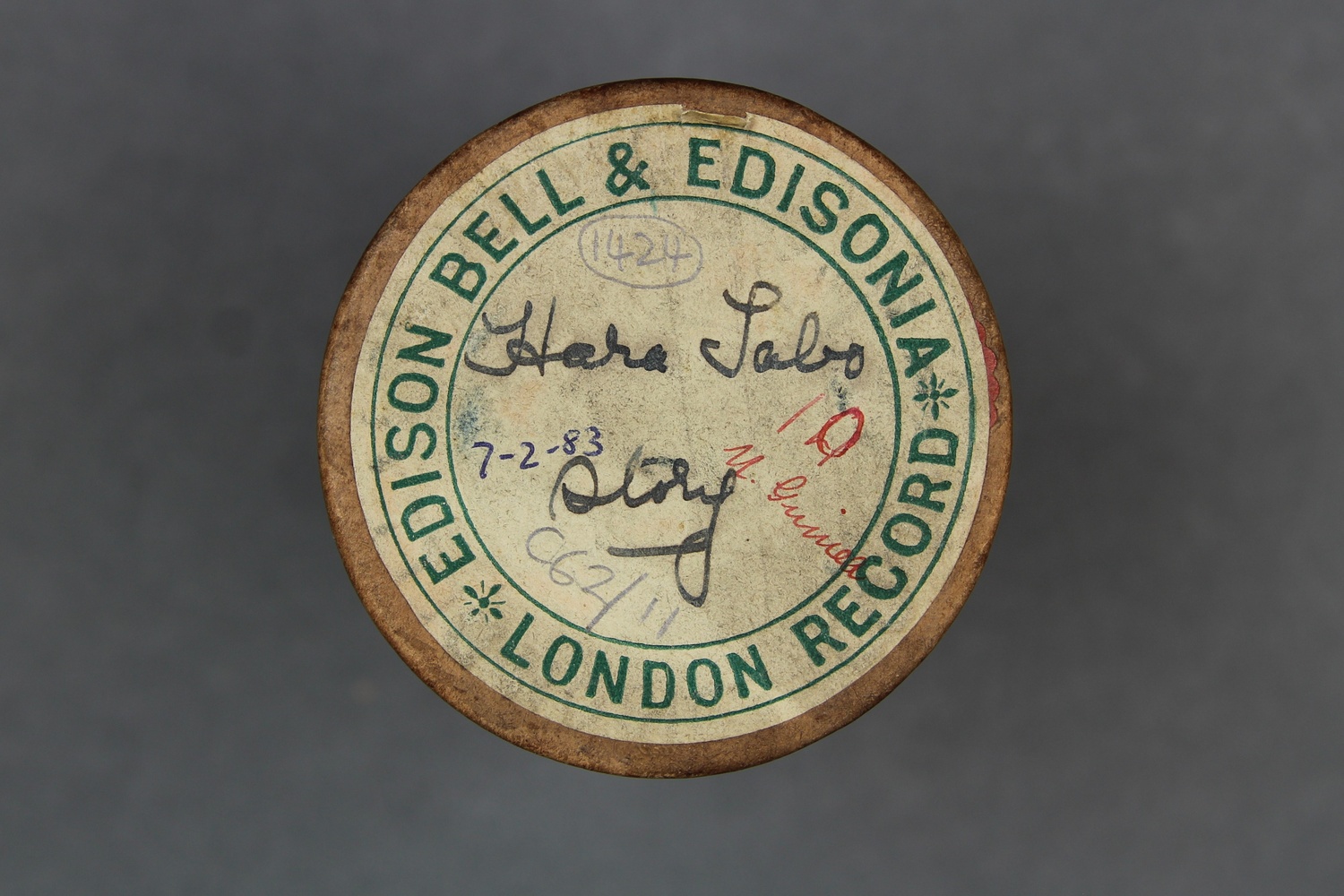      | This story is transcribed in Charles G. Seligmann, 'The Melanesians of British New Guinea', Cambridge University Press, 1910:183-185. | ||||||
| C62/1426 | (Solo) Kaime – Gore. A.H.D | Unidentified (singer, male) | Port Moresby, British New Guinea | 5 January 1904 ? | 1. Male vocal solo, accompanied by percussion. This is probably a historical ehona song concerning Kaimegore, a man who sailed a lakatoi canoe as part of the hiri trading voyage. | Good quality recording. | Motu and/or Koitabu | Field recordings; Trading song; Voyaging song | Seligman, Charles Gabriel | 2'11" | Daniels Ethnographical Expedition to New Guinea 1904 | Brown wax cylinder | Daniels Ethnographical Expedition to New Guinea 1904 Cylinder Collection (C62) | British Library | 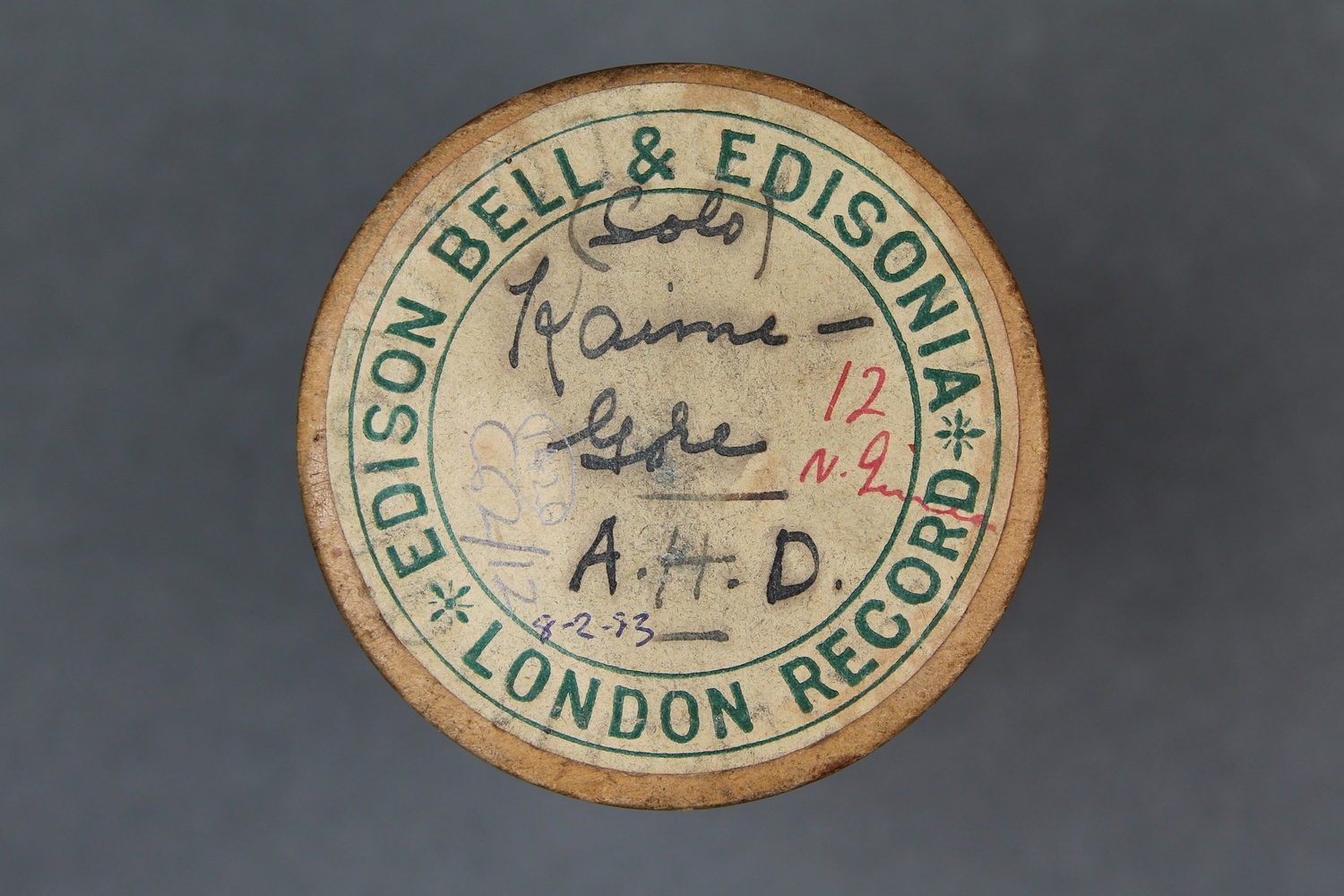      | Transcription of song in F. R. Barton's chapter in Charles Seligmann 'The Melanesians of British New Guinea', Cambridge Universtiy Press, 1910:117. | ||||||
| C62/1437 | Galo Galo. Motu | Unidentified (male chorus); unidentified (percussion) | Port Moresby, British New Guinea | October 1904 | 1. Announcement: "Galo Galo, a Motu song, sung when hauling captured dugung alongside the canoe, Hanuabada, October 1904." 2. Male vocal group with percussion accompaniment. Moto is presumably a typographical error and should read Motu. A dugong hunting song. | Good quality recording. | Motu | Field recordings; Dugong fishing song | Seligman, Charles Gabriel | 3'41" | Daniels Ethnographical Expedition to New Guinea 1904 | Brown wax cylinder | Daniels Ethnographical Expedition to New Guinea 1904 Cylinder Collection (C62) | British Library | 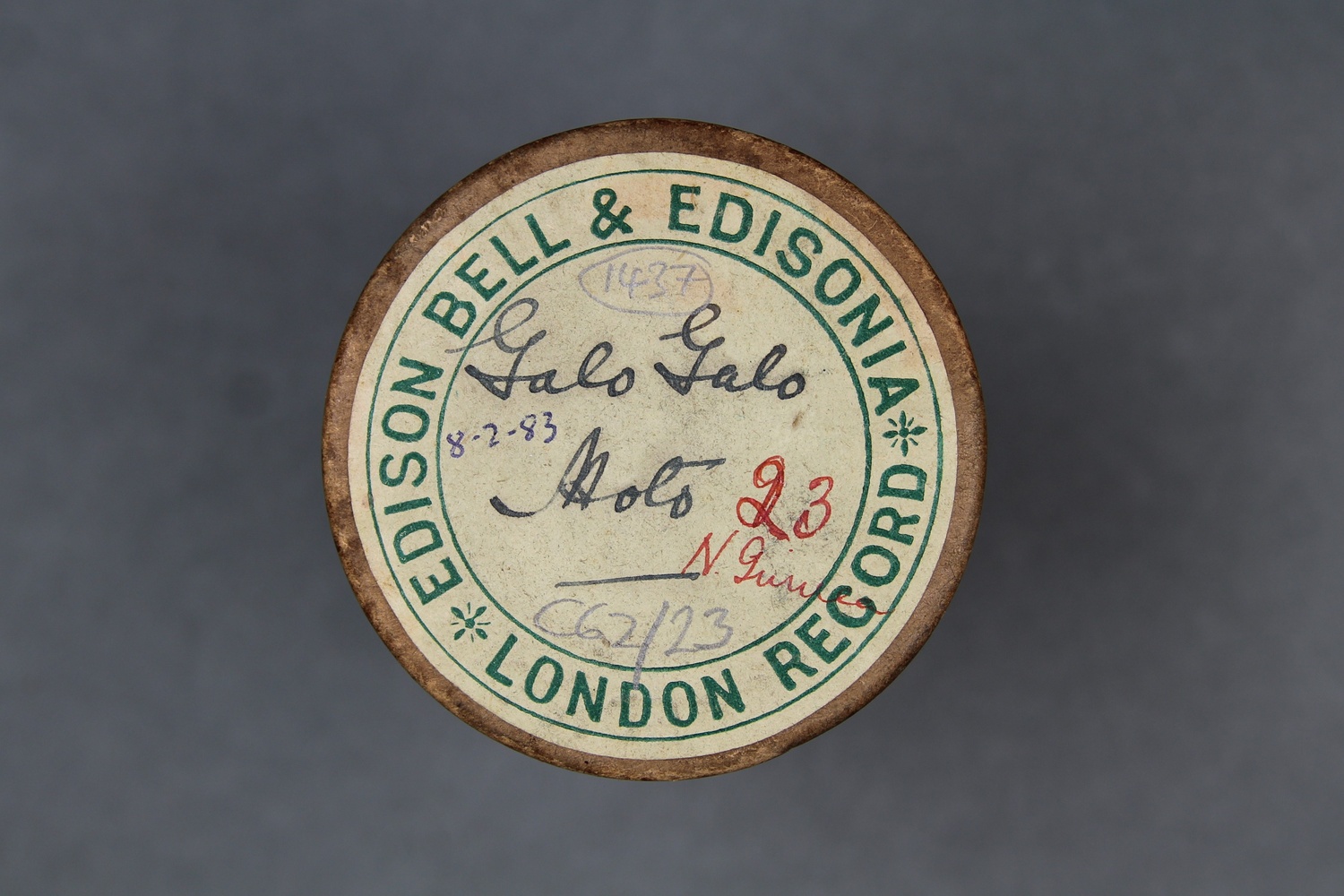      | |||||||
| C62/1438 | Bogi Bada | Unidentified (singer, male); unidentified (percussion) | Port Moresby, British New Guinea | 5 January 1904 | 1. Unaccompanied male vocal solo. 2. Male vocal solo with percussion accompaniment. This is a historical ehona song concerning a lakatoi canoe trip as part of the hiri trading voyage. | Reasonable quality recording but with surface noise. | Motu | Field recordings; Trading song; Voyaging song | Seligman, Charles Gabriel | 2'36" | Daniels Ethnographical Expedition to New Guinea 1904 | Brown wax cylinder | Daniels Ethnographical Expedition to New Guinea 1904 Cylinder Collection (C62) | British Library | 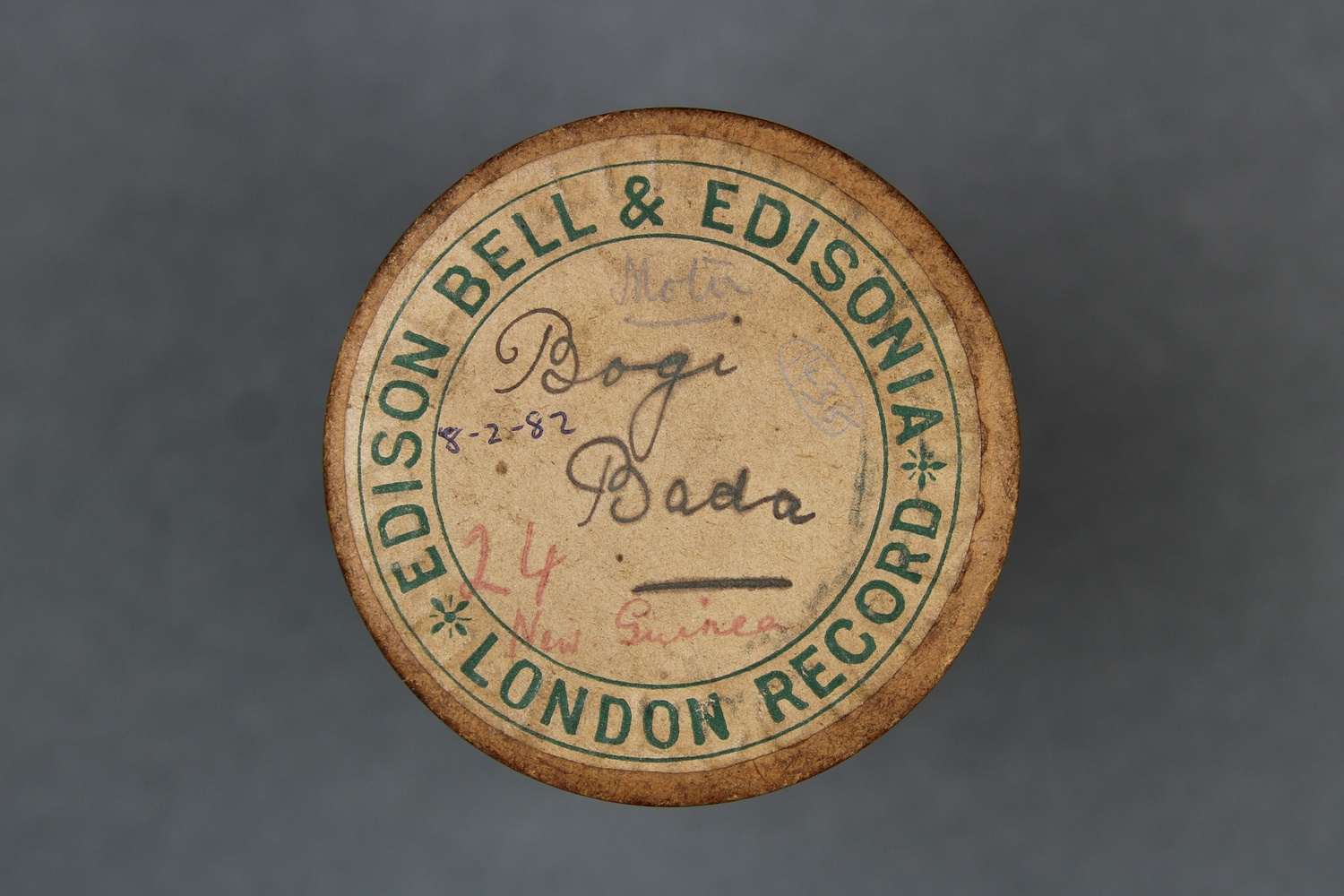      | Transcription of song in F. R. Barton's chapter in Charles Seligmann 'The Melanesians of British New Guinea', Cambridge Universtiy Press, 1910:116. | ||||||
| C62/1439 | Kaime Gore / Gaigo Lelova | Unidentified (male chorus); unidentified (percussion) | Port Moresby, British New Guinea | 5 January 1904 | 1-2. Male vocal group accompanied by percussion. This is probably a historical ehona song concerning Kaimegore, a man who sailed a lakatoi canoe as part of the hiri trading voyage. | Reasonable quality recording but with some surface noise. | Motu and/or Koitabu | Field recordings | Seligman, Charles Gabriel | 2'34" | Daniels Ethnographical Expedition to New Guinea 1904 | Brown wax cylinder | Daniels Ethnographical Expedition to New Guinea 1904 Cylinder Collection (C62) | British Library | 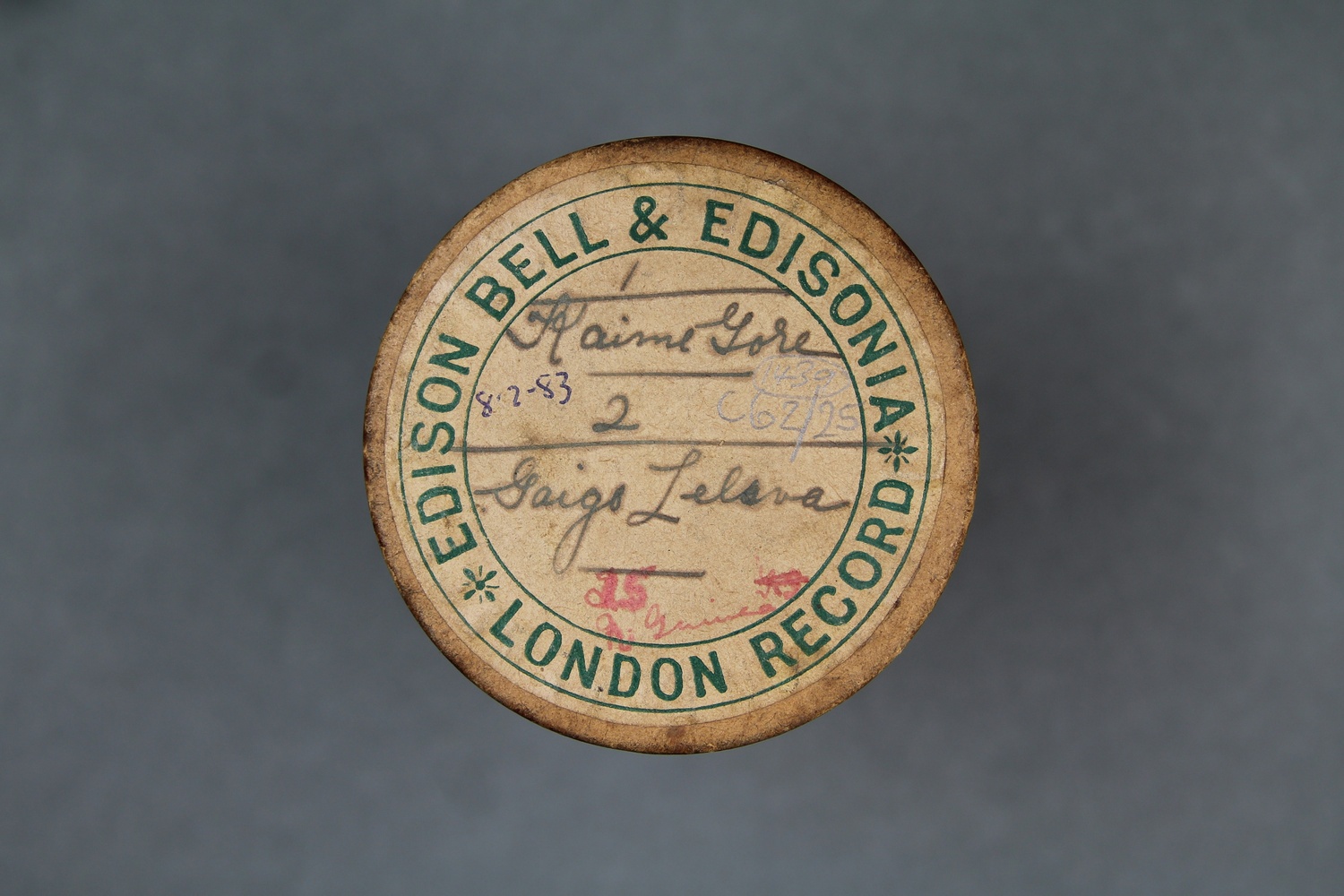      | Transcription of song in F. R. Barton's chapter in Charles Seligmann 'The Melanesians of British New Guinea', Cambridge Universtiy Press, 1910:117. | ||||||
| C62/1451 | Various calls. Koita | Unidentified (singer, male) | Port Moresby, British New Guinea | October 1904 | 1. Announcement: "[indecipherable] calling to [indecipherable] to be brought to [indecipherable]. 2. Unaccompanied male vocal solo. 3. "Hunting call, returning to village after catching fish." 4. Unacc. male vocal solo. 5. Call given from [indecipherable], signalling return of Lakatoi." 6. Unacc. male vocal solo. 7. "Call from [indecipherable] for folk to come and take baskets containing yams and portions of fish." 8. Unaccompanied male vocal solo. Calls related to hunting, fishing and sailing. | Good quality recording. | Koitabu | Field recordings; Speeches | Seligman, Charles Gabriel | 3'34" | Daniels Ethnographical Expedition to New Guinea 1904 | Brown wax cylinder | Daniels Ethnographical Expedition to New Guinea 1904 Cylinder Collection (C62) | British Library | 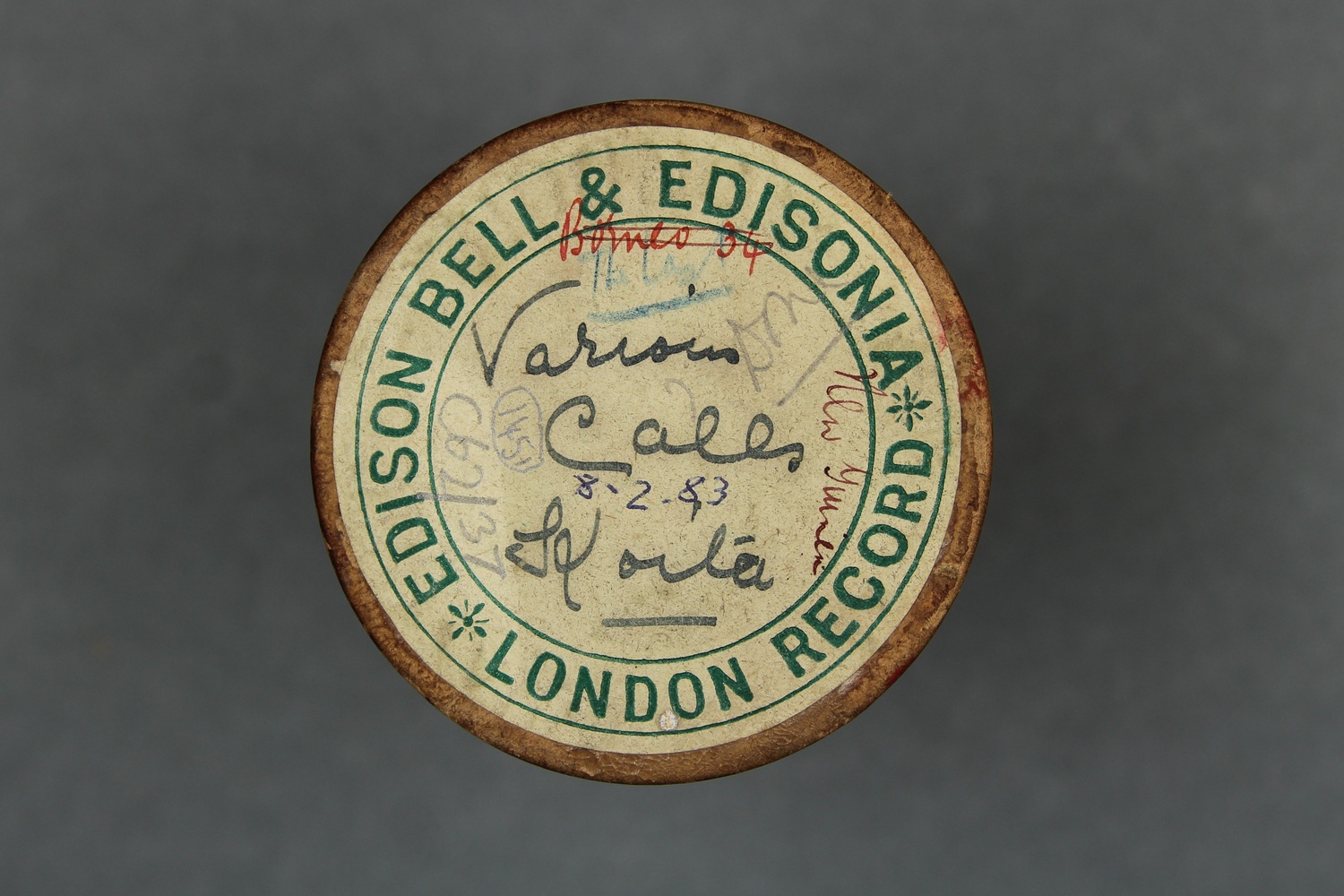      | |||||||
| C62/1452 | Ehona Koita | Igo Gow (singer, male) | Port Moresby, British New Guinea | October 1904 | 1. Announcement: "Ehona, a Koita and Motu dirge, sung by Igo[?], Port Moresby, October 1904." 2. Male vocal solo, accompanied by percussion. An ehona song. | Reasonable quality recording but with weak signal and some distortion. | Koitabu and/or Motu | Field recordings; Laments | Seligman, Charles Gabriel | 3'50" | Daniels Ethnographical Expedition to New Guinea 1904 | Brown wax cylinder | Daniels Ethnographical Expedition to New Guinea 1904 Cylinder Collection (C62) | British Library |       | This song may be discussed and transcribed in Charles G. Seligmann, 'The Melanesians of British New Guinea', Cambridge University Press, 1910:152. | There are two photos of Igo Gow in the British Museum (Oc,B119.43 and Oc,B119.52). |
These include all recordings identified as Motu, as well as Koita ones, because of the possible sharing of genres. Unidentified recordings also were included.







